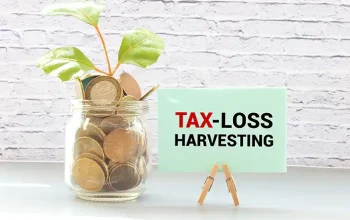You may be surprised to know that the money taken from your pension after retirement will usually count as ordinary income – “as if it were a wage”.
There are ways to manage this tax effectively. Selecting a flexible income, such as income drawdown, can help keep your tax bill low.
Tax-free
Your pension income is tax-exempt until you take money out. The first 25% is exempt and doesn’t affect your personal allowance, while anything beyond this threshold becomes taxable and added to any other income sources you may have.
Before making a decision about how much to take from your pension, consult an independent financial adviser. They can explain how taxes apply and help maximize its value.
There are other ways to take money out of your pension without paying tax. This could include phased drawdown or uncrystallised funds pension lump sums (UFPLSs).
A pension can also serve to protect your savings against inheritance tax. However, it’s essential to remember that this strategy may be more advantageous for bequests than retirement income.
Partly taxable
If you are receiving distributions from a pension plan, some of them may be considered taxable income depending on how you and your employer made the initial contributions to the plan.
When taking money out of your pension, it is added to other income sources like wages or interest earned, potentially placing you into a higher tax bracket for the year. However, the first 25% of any drawdown from your pension is tax free.
This amount, known as your ‘pension commencement lump sum’, is usually taken at the start of retirement.
You may take out a portion of your pension savings as cash and tax-exempt, provided you don’t move it into drawdown or invest it elsewhere.
The standard annual allowance is PS40,000 across all of your pension schemes, but this amount may be reduced if your income exceeds certain limits. In such cases, you would only be able to contribute a maximum of PS4,000 each year.
Fully taxable
According to the tax regulations of your country, pension contributions may be fully or partly tax deductible. In certain jurisdictions, you may even qualify for a reduced rate of tax on your pension income compared with what you would pay on employment earnings.
Deferring income tax until retirement allows for this flexibility, though it should be remembered that some taxable pension payments are included in your annual taxable income and therefore subject to Income Tax withholding.
In the UK, most pension savings are taxed if they exceed a set amount each year – known as an annual allowance.
The annual allowance in England and Wales is currently PS40,000 per year, across all pension schemes you belong to. However, this can be reduced if you take money out of your pension or access savings through money purchase arrangements and may also affect any carry forward allowances available to you.
Unauthorised payments
Pensions can be a complex subject, and everyone’s tax situation differs. If you’re uncertain how your pension will impact your tax burden, speak to a financial adviser for further guidance.
Some pensions are crystallised – meaning up to 25% of your pension income is tax-exempt, with any remaining amounts taxable. While this can be advantageous as it protects funds from market volatility, it can also make it difficult to know how much of your savings can be withdrawn without incurring tax on it.
Unauthorized payments of pensions, which may incur tax liabilities, are a common occurrence with pension providers. If they send you a lump sum that includes pensions due in previous years but isn’t authorized, taxation could apply.
Paying tax on these payments can be avoided, by claiming the correct relief and not leaving any excess to taxation. But the best way to guarantee you don’t get caught out is by setting up your pension correctly and understanding how to use it efficiently.





